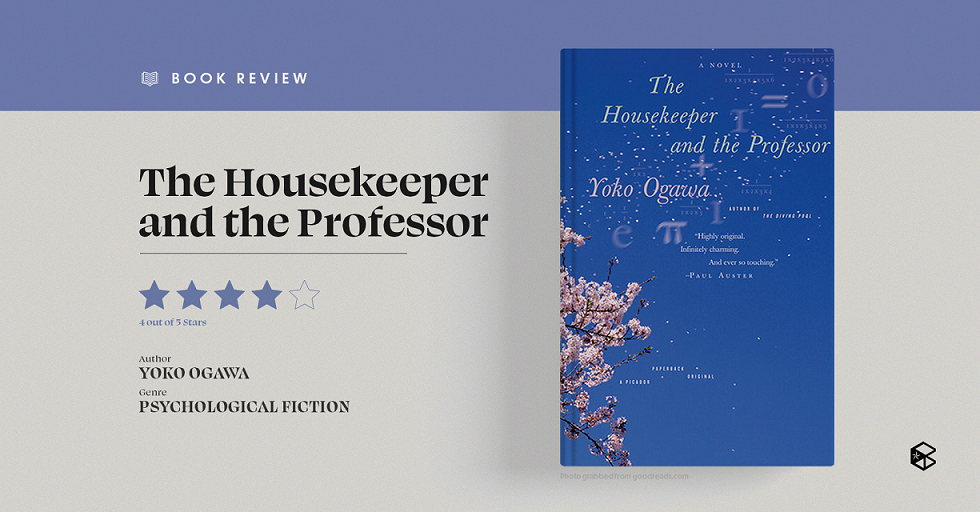An unbounded story of a found family is lucidly told through Yoko Ogawa’s crystalline prose.
Ogawa writes her stories in corners tucked away from sprightly adventure, as comforting as her family home in Okayama Prefecture, Japan, where she was born and raised. Since 1988, she has published over 20 works of fiction and nonfiction that convey her notion on memory, compassion, and being a castaway of society.
In her novel, The Housekeeper and the Professor, Ogawa writes about a homely, genius professor in an old suit clad in sticky-notes that contain reminders and mathematical equations to aid his 80-minute memory. She redefines the meaning that we ascribe to deep relationships with other people and with life through the Professor and the Housekeeper that are introduced to each other anew every morning.
The Professor’s long-term memory was cut in 1975 after hitting his head in an automobile accident. His sister-in-law had replaced nine housekeepers for him over the 17 years leading up to his meeting with our protagonist, the Housekeeper. He keeps in the shabby office of a cottage a few paces from his sister-in-law’s, with only his love of the timeless language of mathematics to keep him present.
“Are all things quantifiable, Are all numbers fraught with poetic possibility?”
Despite the Professor’s social apprehension, he forms a bond that transcends memory with the Housekeeper and her son, Root, whom he had given the nickname to after the boy’s head that was flat like the square root symbol. The Professor is a slouched man who doesn’t meet the eye, but mathematics was always there as incentive for conversation. The way he has acquainted himself with all the numbers his brain has retained and regards them as identities that have existed long before they were given name reflects in his compassion for Root and his mother.
Ogawa writes of loving and caring that manifests without the premise of remembering shared experiences. Through The Housekeeper and the Professor, she imparts how affection runs innately in humanity. As long as it finds reserve in the tender human heart, it does not care for recognition or the passage of time—it exists in the same way the figure of i is sublime. He pats Root’s head in the same way he always has, and his glance carries the same timid softness of yesterday when they met for the first time.
The Housekeeper and the Professor is not just any tale of love and memory. Ogawa never wrote the main characters to make readers anticipate or question a romantic relationship, or a paternal one. She unfolds their relationship as a story that desires no deconstruction, so as to write that there are caring humans simply because they are caring—not because of a honeypot that waits for them in the end as gratification. This can especially be discerned in how she imbues character to the Housekeeper who is a very young, single mother, with the profound compassion she has developed for the old man. This can also be perceived in how the Professor’s demeanor never hardens with Root despite his resetting memory.
Ogawa writes of a solace that is conceived despite what society would consider as adversities in the characters’ standings. It blossoms anew everyday—it does not go away with the acute impermanence of memory. It does not abandon painfully like the young, careless man who vanished to not take accountability for the Housekeeper’s pregnancy.
“All we ask is to be able to recreate the pattern [of the universe], weave it again with numbers, somehow, in our own language; to make the tiniest fragment our own, to bring it back to earth.”
Their peaceful yet profound trope reflects in Ogawa’s writing style as a whole. The short novel reads like a secluded river, consistent and calmly revealing a heartfelt truth about nature. She builds her scenes around a sentimentally descriptive setting, such as the apricot’s blossoms being heavy with rain, or the dim light in the Professor’s study.
This is a story of a serene and profound compassion that pays no heed to a pain-riddled past. Ogawa writes of this love that cannot be rationalized by human language, the closest we have ever gone being through the language of numbers.
You can find this book online in different shops on Shopee.


